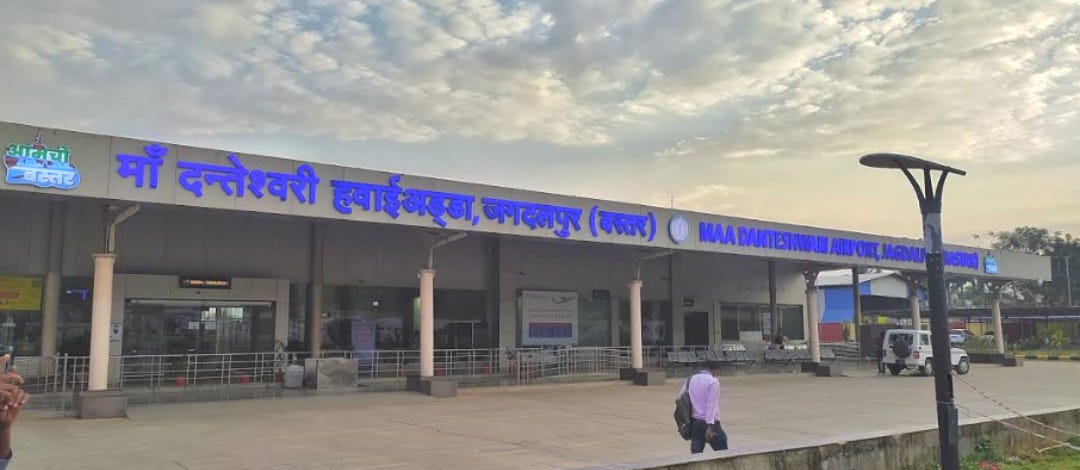Journalists are aware of the expectation: It follows us into every conversation with victims of crimes, accidents, and long legal battles. It lingers in their voices and in their eyes.
They speak to us, hoping our words, our stories, will push their struggle closer to justice. They expect our reporting to aid their quest for justice.
We navigate this expectation in different ways. Some of us honor it, doing what we can to shine a light. Others exploit it, making lofty promises to gain access. Regardless of the approach, the expectation remains—unspoken but ever-present.
In my years of traveling across India's hinterlands, speaking to victims of religious hate crimes, this expectation was always present—victims believed that a single call to police from a journalist could spur action.
But when I spoke to 20-year-old Junaid Jamadar, I was in for a surprise.
Jamadar, a student of Pune’s Savitribai Phule University, was attacked by Hindutva vigilantes in April 2024. They insisted that he was involved in “love jihad”, the conspiracy theory that Muslim men were convincing Hindu women to marry them and convert them to Islam.
Jamadar was attacked on campus by the mob, most of them outsiders, while he walked with five friends, some of them women. The men forced him to call his parents in Solapur’s Akkalkot town and threatened them with dire consequences if they did not withdraw their son from the university.
That night, he went to a police station and filed a first information report against the mob.
A year after the attack, Jamadar has no idea where the police investigation stands—whether his assailants were arrested, if they are free, or if the police had even filed a chargesheet, a recognition that the investigation was complete.
As a reflex, I told Jamadar that I would get in touch with the Pune police to find answers to those questions.
His voice immediately betrayed alarm. “No, please don’t ask them anything,” said Jamadar.
I paused. He continued, slowly but with certainty.
“If you ask the police, they will think it’s coming from me,” said Jamadar. “That might lead to more problems for me, so please don’t ask them about the case at all.”
I did not know what to say.
It wasn’t the first time that I had heard a victim asking me to protect their identity. It happens all the time, especially when perpetrators are in powerful positions and the power dynamics between the two are skewed.
But it seldom happens that victims want to be shielded from the police themselves, the same police entrusted with protecting the victim.
“I have a year and a half more on this campus, and I just don’t want any more problems,” he said, expecting me to understand his concerns.
I told him I understood.
The morning after he was attacked, Jamadar left for his family home. He stayed there for close to a month. In the time he spent there, he was haunted by what had happened. He fought fears of an encore if he returned to the campus. His ears kept ringing, he said, with the threats the mob made to his parents.
He fought all this alone. When the time came for him to return to campus, he did so reluctantly, to appear for his exams. He had to muster all his courage to return.
The police never checked on Jamadar, never offered protection, not even a reassurance of safety. They never told him what they did with his assailants.
If the police had not done enough to win his trust and confidence, could I blame him for not harbouring any of it towards the police?
I told him I understood.
The silver lining? His friends, his teachers and his classmates.
The night of the attack, Jamadar had called his professor, shaken, saying he wanted to quit university, return to Akkalkot, and never set foot on campus again. His professor not only convinced him to stay but also took him to the police station. His friends—some of whom were beaten for standing by him—refused to let him go. Jamadar said that ever since he got back to the campus, they surrounded him, letting him know they stand by him.
The incident eroded his faith in the police. His community stepped in to fill the void.
The system failed him. But his people did not.
You can read Kunal Purohit's full story here.
Also read:
Field Notes: A Maoist Veteran Adjusts To Modern Bastar
When I met 82-year-old Bhanu, she was struggling to read the price tag on an ice-cream cup for a customer at her little shop.





